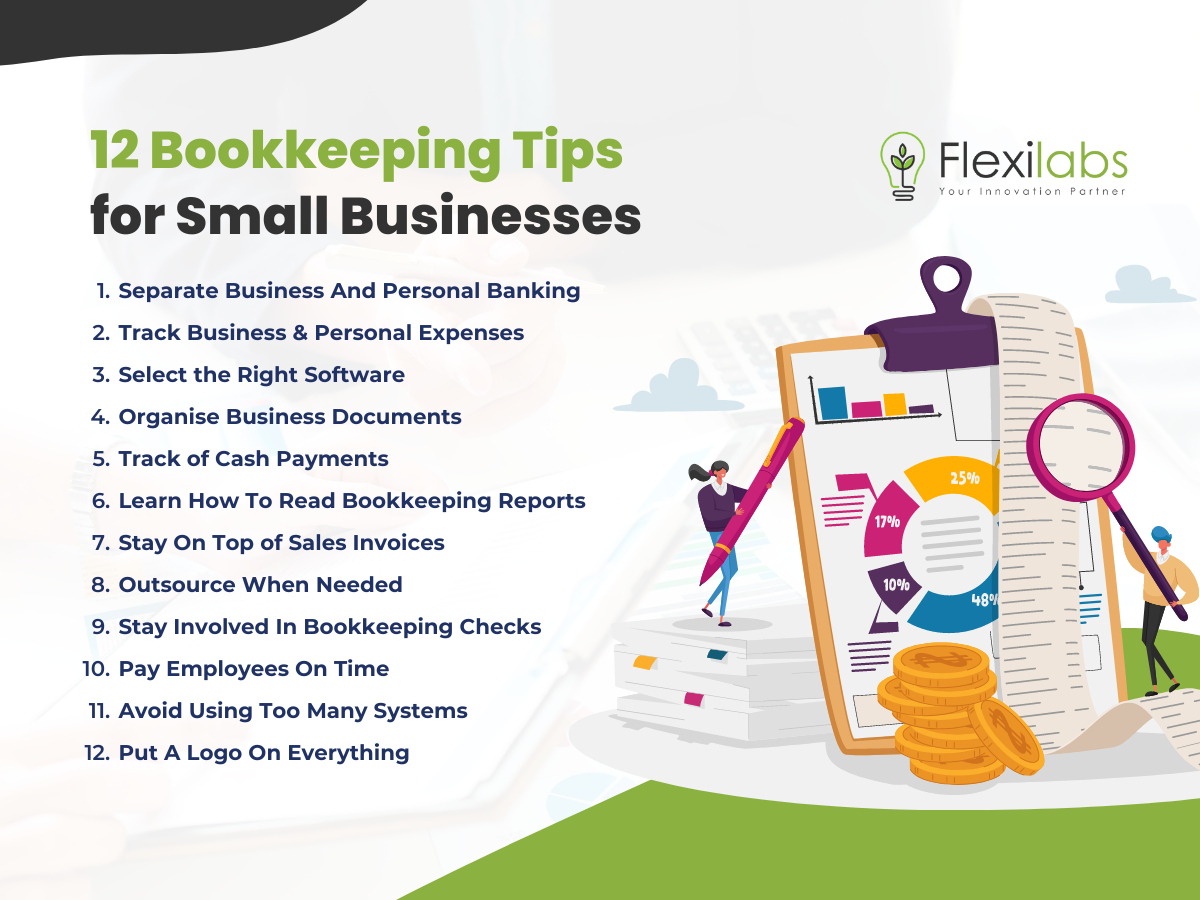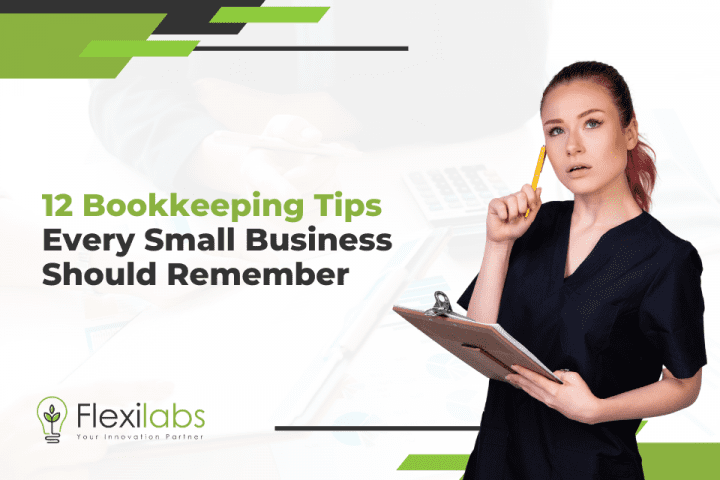Having great bookkeeping tips that you can go back to is a godsend. This is because bookkeeping is essential for your small business’ success. It literally tracks the flow of both your investment into your business and the profits you have earned.
In addition, bookkeeping paints an accurate financial picture of your business’s health and helps you make informed decisions. It is one of the fundamental business needs that business owners should pay attention to. That is why we compiled this list of helpful bookkeeping tips for beginners.
What are the 3 basic bookkeeping practices principles?
One of the important pieces of bookkeeping for startups is familiarizing yourself with the basic principles of efficient bookkeeping.
Double-Entry System
Every financial transaction should have at least two equal and opposite entries in the accounting records. This ensures that every transaction is accurate and provides complete information.
Accrual Accounting
Revenues and expenses should be recorded when they are earned or incurred. This is a must and should be applied regardless of the time the payment is received or made.
Chart of Accounts
Use a standard format for accounts to categorise and organise financial transactions. This ensures that information is consistent and accurate in all financial reports. In addition, it makes it easier to analyse and compare reports.
12 Bookkeeping Tips for Small Businesses
Learning how to do bookkeeping for small businesses is one of the steps to ensuring a successful business. Here are some helpful bookkeeping tips for better business practices.
Separate Business And Personal Banking
Avoid mixing business and personal funds. It is a hassle to process personal and business expenses if you use the same bank account.
As such, you should open a separate bank account for your business, preferably one that can be accessed through an online banking app. Keeping business and personal funds separate is super handy for you.
In addition, you can easily make business payments without worrying that your personal funds will be affected and reconcile transactions when you are bookkeeping.

Track Business & Personal Expenses
Second on our list of accounting tips for beginners is to track your business and personal expenses separately. This is especially important for solo business owners.
It is easy to take funds out of your business account for personal expenses instead of paying yourself a salary. But this should not be the case, especially if you want your business to succeed.
To keep things organised and avoid confusion, transfer a fixed amount from your business account to your personal account on a regular basis. This will serve as your salary.
Moreover, record everything, especially if you use personal funds for business expenses. This ensures better tracking of expenses and minimises any hassle at the end of the year.
Select the Right Software
While it might seem like choosing software is easy, selecting the right bookkeeping software is crucial. The right software should be able to help you record, track, organise, and even create the perfect accounting reports.
In addition, each piece of software available in the market has its features and benefits. With that said, here are a couple of bookkeeping software programmes that you should check out:
- Cashbook
- QuickBooks
- Xero
- Sage
- FreshBooks
Organise Business Documents
Our number one bookkeeping organisation tip is to record and organise every expense immediately. This will save you a tonne of time and effort later when you will account for all your expenses at the end of the month.
In addition, staying organised makes it easier to provide the proper documents for auditing and tax departments.
It is encouraged to have at least two copies of your financial documents. If you have physical copies, make sure you set up a well-organised filing system that is easy to follow and identify.
Track of Cash Payments
One of the bookkeeping tips that is a good business practice is to track your business’s cash payments. This ensures you avoid any potential bookkeeping issues.
In addition, it is also good business practice to deposit all the cash or profit straight into your business account. This helps avoid inaccuracies and potential tax issues down the line.
Learn How To Read Bookkeeping Reports
As a business owner, especially if you are the sole proprietor, you are involved with every aspect of the business process. Of course, there are others who would opt to delegate some aspects to their staff, such as bookkeeping and accounting.
While it is more convenient and easier to leave bookkeeping to someone else, it is important that you know how to read bookkeeping reports. This ensures that you are aware and understand where your business’s funds and profits go.
Stay On Top of Sales Invoices
Staying on top of sales invoices is one of the must-do accounting tips for business owners.
With that said, make it a habit to send out customer invoices immediately after completing a job or by the end of the month. This ensures you pay your suppliers on time and avoid possible financing issues.
In addition, it is a good business practice that makes you a more trustworthy establishment.
Outsource When Needed
Knowing when you need help is also a good bookkeeping tip. This is a better and more logical route when you are overwhelmed by having to do everything alone or not that well-versed in bookkeeping.
In addition, outsourcing can sometimes be more cost-effective than hiring an in-house accountant. It also gives you an opportunity to learn the best practices from the experts.
Stay Involved In Bookkeeping Checks
You should also stay involved with bookkeeping and accounting checks. This is in relation to the bookkeeping tip mentioned earlier about learning how to read reports.
One, you can personally ensure that there are no mistakes. Two, positioning yourself as the final step for the bookkeeping checks minimises the chances of any fraudulent activity.
Pay Employees On Time
Bookkeeping is not just about tracking the expenses and profits you rake in. It is also about ensuring that you pay your employees on time.
With that said, make sure to set aside money to cover salaries and payroll taxes. This helps minimise the chances of receiving unnecessary fines or even legal action from your employees or government.
Avoid Using Too Many Systems
Bookkeeping, and accounting software programs can make things easier for you and your staff. However, this does not necessarily mean you should use multiple systems.
On the contrary, using more than one or two complicates the whole process. This leaves your business open to bookkeeping mistakes or, worse, fraudulent activity. So, when selecting software, make sure to factor in your bookkeeping and accounting process flow and the relevant features.
Put A Logo On Everything
Putting a logo on all your bookkeeping and accounting records adds authenticity and trustworthiness to your financial documents. In addition, this makes it easier for auditors and the government to confirm that the records are from your small business.
How can I get better at bookkeeping?
To sum it up, there are five bookkeeping tips for small businesses that you should always remember:
- Keep detailed records of all financial transactions.
- Separate personal and business finances.
- Invest in good bookkeeping software.
- Reconcile your accounts regularly.
- Review all records with your bookkeeper on a monthly basis.
With that said, we are also adding this bookkeeping checklist that you can follow every month:
- Review your cash position
- Update your bookkeeping software
- Review customer and vendor invoices
- Check aged accounts receivable and accounts payable reports
- Reconcile credit card and bank accounts
- Calculate and record sales tax
- Review open client and vendor deposit report
- Review the following months’ forecasted cash flow
- Review your inventory
Want more tips to better manage your small business finances? Check out our blogs for expert advice about managing your business!

